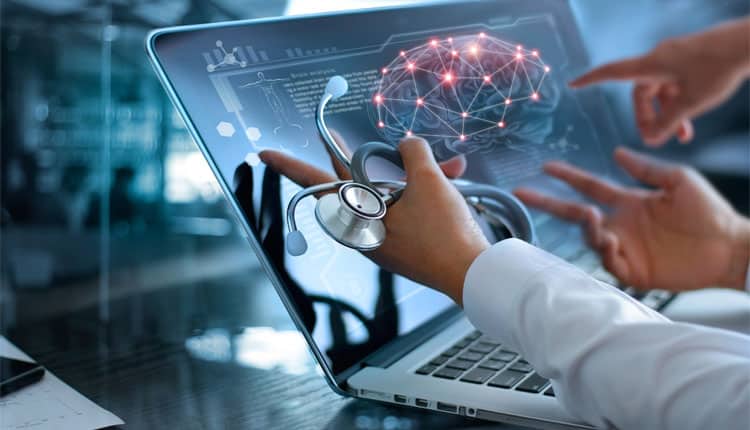By Anup S S, Practice Head, Artificial Intelligence, Tata Elxsi
Artificial Intelligence is undergoing steady research and development with its influence being felt across industries, specifically in the healthcare sector. From optimising drug combinations to diagnostic assistance and toxicity studies, AI is set to redefine every facet of healthcare. The healthcare sector is also acknowledging the critical need for an interdisciplinary approach that integrates engineering with medical science. This paradigm shift signals an era in which AI’s extensive capabilities will revolutionise diagnostics, patient treatment protocols, drug development and delivery, and prescription practices in the next decade.
Impact of digital and connected technologies in healthcare
In the constantly evolving healthcare landscape, the fusion of Multimodal AI and Neuromorphic Technology represents a pivotal moment. Firstly, Multimodal AI refers to the generative capabilities of AI like processing information from multiple modalities, including images, videos, and text. In healthcare, these modalities often include both visual and clinical data. Visual data may include medical images from scans, while clinical data encompasses patient records, parameters, and test reports. Multimodal AI integrates these diverse data types to provide a comprehensive understanding, draw meaningful insights and give suggestions based on data and image analytics.
Neuromorphic Technology, on the other hand, comes from the combination of “neuro” (related to the nervous system) and “morphic” (related to form or structure). It refers to a method of computer engineering in which computational elements are modelled after systems in the human brain and nervous system. These are AI-powered by brain-like computing architectures and can process larger amounts of data with less computing power, memory, and electric power consumption. For one, Neuromorphic Technology utilises Artificial Neural Networks (ANN) and Spiking Neural Networks (SNN) to mimic the parallel processing, event-driven nature, and adaptability observed in biological brains.
The fusion of Multimodal AI and Neuromorphic Technology transitions from reactive medicine to a proactive and preventive healthcare paradigm. This synergy goes beyond the collaboration of cutting-edge technologies; it opens the door to a future where wellness is the primary focus. These technologies hold promise to transform healthcare by enhancing diagnostics, enabling personalised medicine, predicting long-term prognosis, and contributing to innovations in therapeutic interventions. For example, Multimodal AI can help in accurate and personalised management of diseases based on data from different sources including lab reports, imaging studies, clinical history and so on. Neuromorphic, on the other hand, can make the medical devices extremely portable with low-energy consumption. This can eventually lead to implantable smart devices that can monitor vital functions on a continuous basis with minimal discomfort to the user.
How connected technologies help to prevent diseases, lower costs & manage chronic conditions
Multimodal and Neuromorphic AI are further enhanced by connected technologies in healthcare. For instance, connected devices help provide more personalised and prognostic insights based on individual variations. Combining visual and clinical data along with machine learning operations to correlate with prior case records further helps prevent diseases and paves the way for a seamless deployment, continuous monitoring, and collaborative development across various stakeholders in the healthcare ecosystem.
What’s more, these technologies also help in lowering healthcare costs. Even with limited resources, a first-level AI-based screening in small facilities can play a pivotal role in early detection of many diseases. AI-based technologies also provide unbiased, objective, and repeatable analysis without any additional costs involved.
Further, connected healthcare with multimodal AI helps patients manage and monitor chronic conditions like Diabetes/HT/Cardiac Diseases with continuous monitoring and personalised medications. The adaptability of multimodal AI to changing data patterns ensures that prognostic models can dynamically adjust based on evolving patient conditions and improve prognosis predictions. It also helps in the discovery of new insights, contributing to medical advancements and innovations. For instance, personalised prognostic models include both visual and clinical data. These models account for individual variations and correlate with prior case records and provide more accurate predictions of disease outcomes.
Additionally, Multimodal AI and Neuromorphic AI technologies also play a vital role in the management of emergency interventions. In such cases, adaptive intelligence for dynamic adjustments enhances the precision of diagnostic processes. This event-driven processing aligns with the dynamic nature of healthcare data allowing for more accurate and timely diagnoses.
Responsible AI: Ethics and regulations in healthcare technology
In the realm of AI, addressing bias stands as a pivotal ethical imperative, particularly in fields like medical analysis where the demand for precise and unbiased inference is ethically, legally, and morally paramount. This requires rigorous testing using diverse, unbiased anonymised datasets, continual monitoring to mitigate biases, and a steadfast dedication to achieving fair outcomes across diverse patient populations.
The foundation of responsible AI in healthcare is laid upon a robust ethical framework that guides the entire lifecycle of Neuromorphic and Multimodal AI systems. This means ensuring transparency, fairness, and accountability at every stage of AI implementation by stakeholders of the industry. It is imperative to define strong ethical boundaries, implement robust audits, and establish legal frameworks to prevent data manipulation and ensure the highest standards of integrity.
As thought leaders in the healthcare industry, it is our commitment to responsibly integrate these technologies for a future where healthcare is not only reactive, but anticipatory, personalised, and universally accessible.

